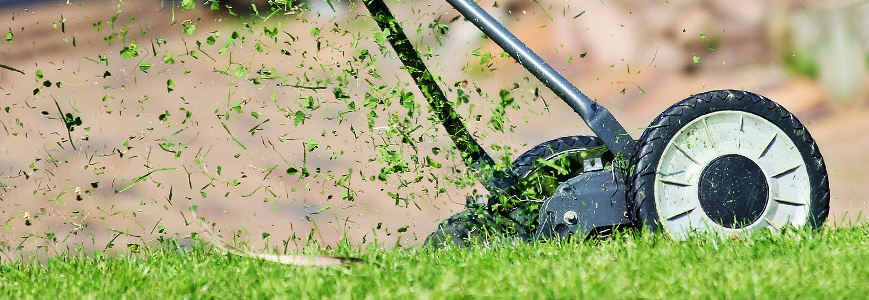THE LANDSCAPING SOLUTIONS BLOG
Welcome to our Blog. Inspiration, updates and industry trends from the team at Landscaping Solutions.
RISE OF THE ECO GARDENER

An unfortunate side affect of living a modern lifestyle is losing touch with nature. As we further develop our towns and cities, slowly swallowing up fields, parks and woodland the gradual loss of our natural surroundings is becoming ever more apparent.
Thankfully, as a nation we are becoming more environmentally aware everyday and attitudes are beginning to shift. As the effects of climate change begin to touch our everyday lives, there has been a rise of eco-conscious gardeners wanting to get back to nature and live a more sustainable lifestyle.
With this change in attitudes, people are developing a greater awareness of the environment as well as becoming more considerate of garden wildlife. Recent figures released by Wyevale Garden Centres showed that 67% of people surveyed considered themselves to be eco-conscious when it came to their approach to gardening. City dwellers in particular are setting a good example when it comes to cutting back on waste and encouraging wildlife.
The same survey also revealed that more than three quarters of gardeners try to avoid using chemicals in their gardens, with 46% opting for organic fertilisers as an alternative.
The negative impact our current food system has on the environment is also becoming clear to the eco-conscious gardeners of today. For this reason, growing your own food and in particular, watching what you eat, is becoming increasingly important to many.
People want to know where their food is grown and are aware that by adopting an organic approach to growing they can dramatically reduce their food’s carbon footprint.
As a result, the grow your own movement has been gaining traction and has quickly become a key focus for the eco-conscious gardener. In fact, a recent report from The Soil Association revealed the UK organic market alone is now worth £2.2 billion.
For those starting out in eco-gardening, knowing were to start can sometimes be a daunting prospect. The trick is to start small with something simple; using recycled pots, encouraging birds and wildlife in to your garden or installing a water-butt can quickly set you on the path to becoming an eco-gardener.
If growing your own food tickles your fancy then starting with items that are relatively easy to grow is also a good way of beginning your eco-gardening journey. A perfect starting point for example would be growing tomatoes. Tomatoes require minimal effort but can still yield satisfying and tasty results.
While all this may seem like relatively small steps at first, if all of us began thinking about changes we could make in our own gardens and implementing those changes we could make a difference. Not only to our own surroundings but to the environment too.
GARDENING: AN ANTIDOTE FOR THE MODERN WORLD

A number of recent studies conducted by researchers and health practitioners have concluded that daily contact with nature has a positive and long lasting affect on our mood. The simple act of gardening itself provides substantial human health benefits and not just for your physical health but your mental health too. In short, gardening is good for you.
Studies carried out across the United States, Europe, Asia, and the Middle East all looked at the effects of daily contact with nature and its long lasting benefits on our health.
The research showed a wide range of positive health outcomes, such as reductions in depression, anxiety, and weight loss.
Many of us live in a society full of daily stresses. Difficult commutes, long working hours, daily obligations and workplace pressures all form part of our daily routines. Add to this high-fat diets, environmental pollutants and increased levels of social and psychological stress and it quickly becomes easy to lose touch with nature altogether.
As a result, conditions such as heart disease, depression, diabetes, and obesity have become a major public health issue. It is estimated that worldwide, approximately 415 million people currently suffer from diabetes and somewhere in the region of 350 million people suffer from some form of depression. Sadly this trend shows no sign of slowing.
As part of the various studies, a number of volunteers who had been diagnosed with depression, persistent low mood, or bipolar disorder were asked to spend six hours a week planting. After three months, over half of the volunteers had experienced a measurable improvement in their symptoms of depression with others showing lower levels of the stress hormone cortisol.
As the research has shown reversing the adverse effects of losing touch with nature is possible. The sensory experience of gardening offers the opportunity to quickly and easily reconnect with nature. First and foremost gardening gets you outdoors, while simple tasks like digging, planting and weeding offer excellent forms of low-impact exercise. The plants themselves improve your local environment, trapping toxins and filtering harmful pollutants, in turn improving not just your health and wellbeing but those around you too.
The beauty of it is you don't need a big garden to start reaping the benefits either. A small garden or courtyard is more than sufficient and even something as simple as gardening containers is a great way to start out. With the right approach even the simplest gardening experience can help make a difference.
As subject matter close to our hearts, we’ve covered a number of environmental issues over the past months. If you have found this article interesting you may also enjoy some of our previous articles - Battling Urban Air Pollution: The Humble Hedge, Pocket Parks and Bees In Crisis.